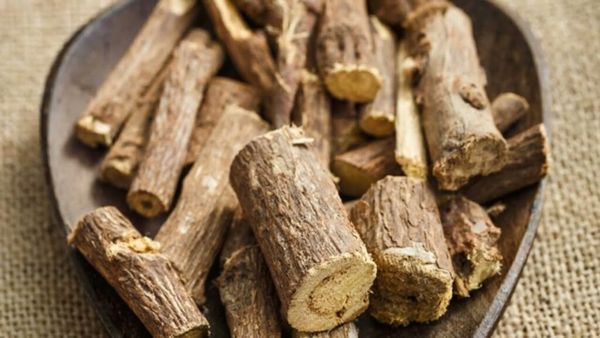
Liquorice, also known as licorice, is more than just a tasty treat. Derived from the root of the Glycyrrhiza glabra plant, liquorice has been used in traditional medicine for centuries. Let’s explore the surprising benefits of this sweet root.
Liquorice root has anti-inflammatory and immune-boosting properties that can help soothe gastrointestinal problems. It is often used to relieve stomach ulcers, heartburn, and indigestion.
If you suffer from respiratory problems, liquorice root can be effective in providing relief. It can help clear mucus and alleviate symptoms of conditions like bronchitis, thanks to its expectorant capabilities.
Liquorice is considered an adaptogen, which means it helps manage stress. By regulating cortisol, the stress hormone, liquorice can be beneficial for those dealing with anxiety and nervous tension.
Studies suggest that liquorice root can improve liver health by protecting it from damage and enhancing its ability to process toxins.
With its powerful anti-inflammatory properties, liquorice can be useful in treating conditions like arthritis. Additionally, it boosts the immune system by enhancing the production of interferon, a key chemical that fights off viruses.
Liquorice’s antibacterial properties make it a popular ingredient in skincare products. It is used to treat conditions such as eczema, acne, and psoriasis, reducing the symptoms associated with these skin disorders.
Liquorice has shown promise as an antiviral, effectively combating various viruses including those that cause respiratory infections and hepatitis.
By improving cholesterol levels and reducing the risk of heart disease, liquorice root can support heart health.
Certain studies suggest that compounds found in liquorice may have anticancer properties. Glycyrrhizin, a key component, has been studied for its potential to inhibit cancer cell growth.
For women, liquorice root can have favorable effects on the hormonal system, particularly in relation to estrogen and progesterone balance.
- Tea: Steep dried liquorice root in boiling water to make a soothing tea.
- Supplements: Liquorice is available in capsule and tablet form for those who prefer not to taste it.
- Topical Applications: Creams and ointments containing liquorice are used to target skin conditions.
Although liquorice has many benefits, it is important to use it cautiously. Excessive consumption can lead to adverse effects such as hypertension, low potassium levels, and water retention due to its glycyrrhizin content. It is advised to use liquorice under the guidance of a healthcare provider, especially for those with heart conditions or hypertension.
Liquorice is a powerful herbal remedy with various therapeutic properties. From soothing digestive issues to potential anticancer effects, liquorice offers a range of health benefits. Whether consumed as a tea, supplement, or topical cream, remember to use it in moderation or under medical supervision to avoid any potential side effects. Cheers to the sweet and beneficial world of liquorice!
